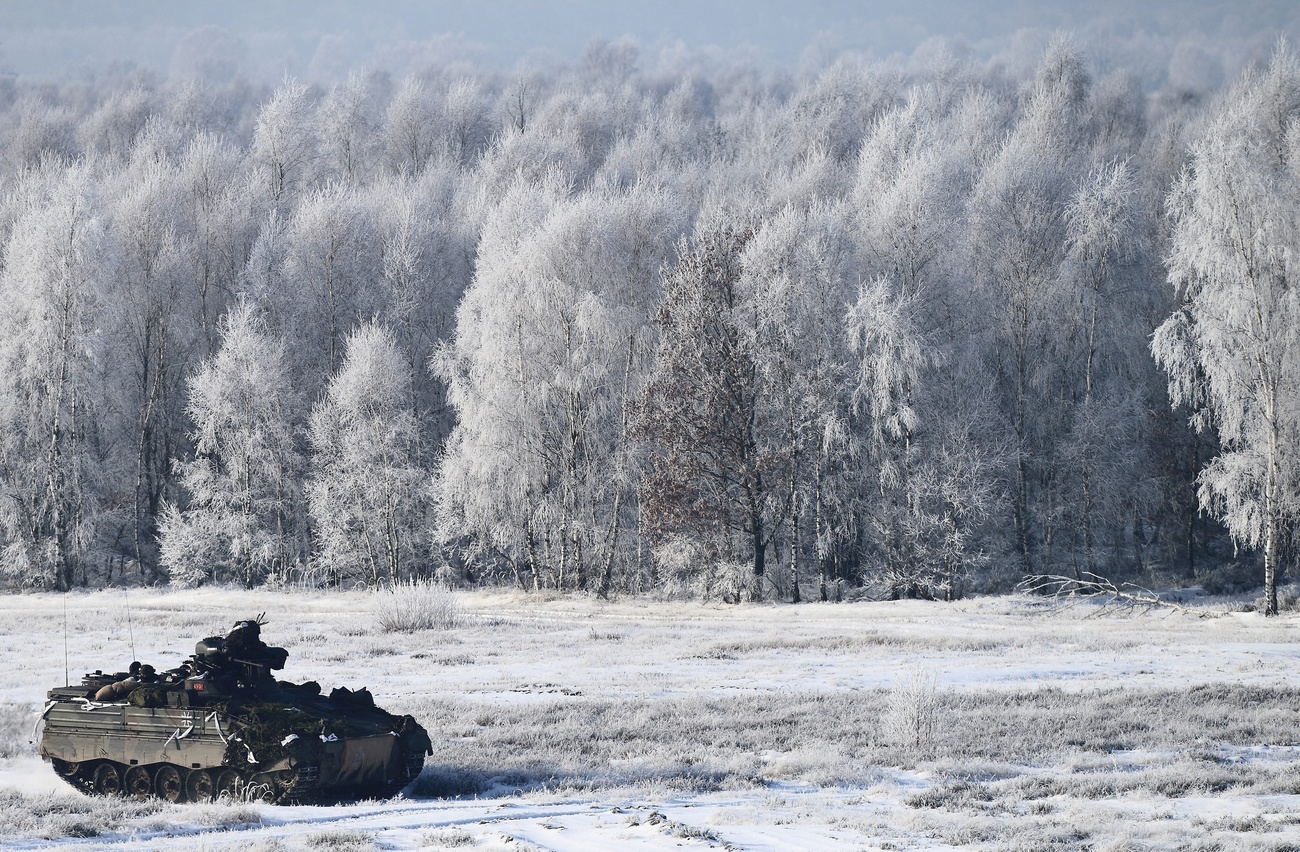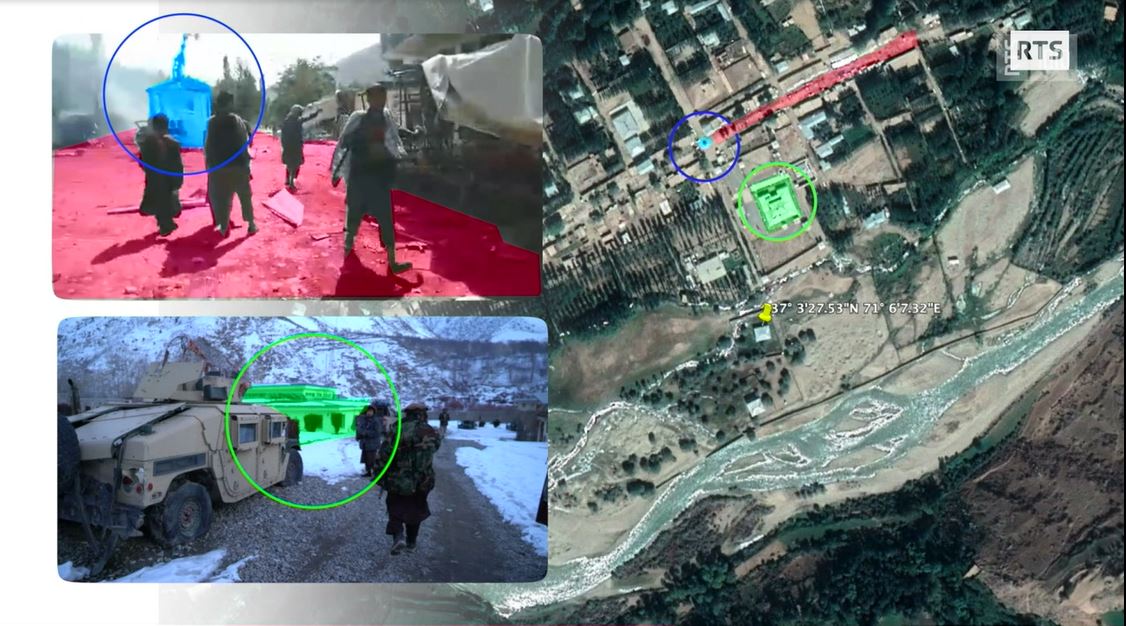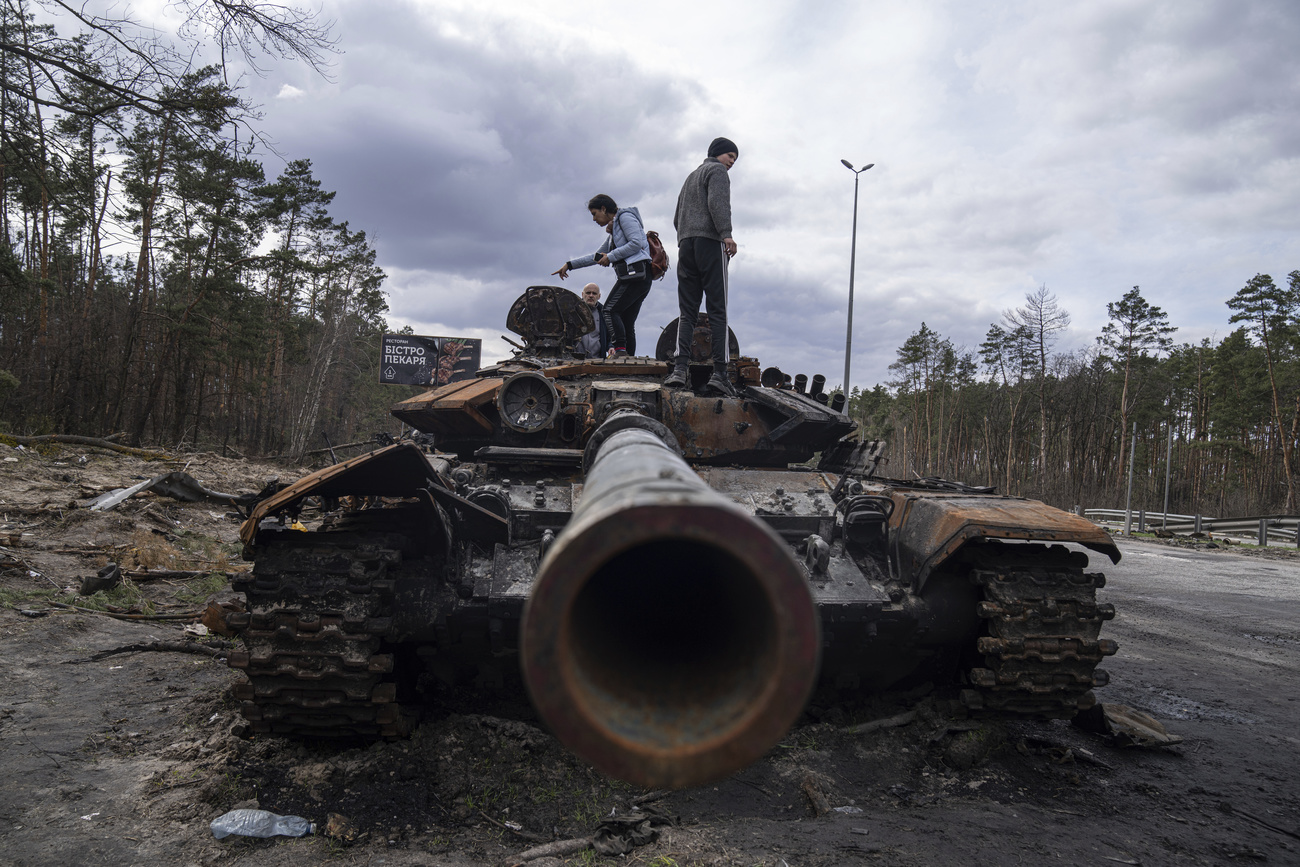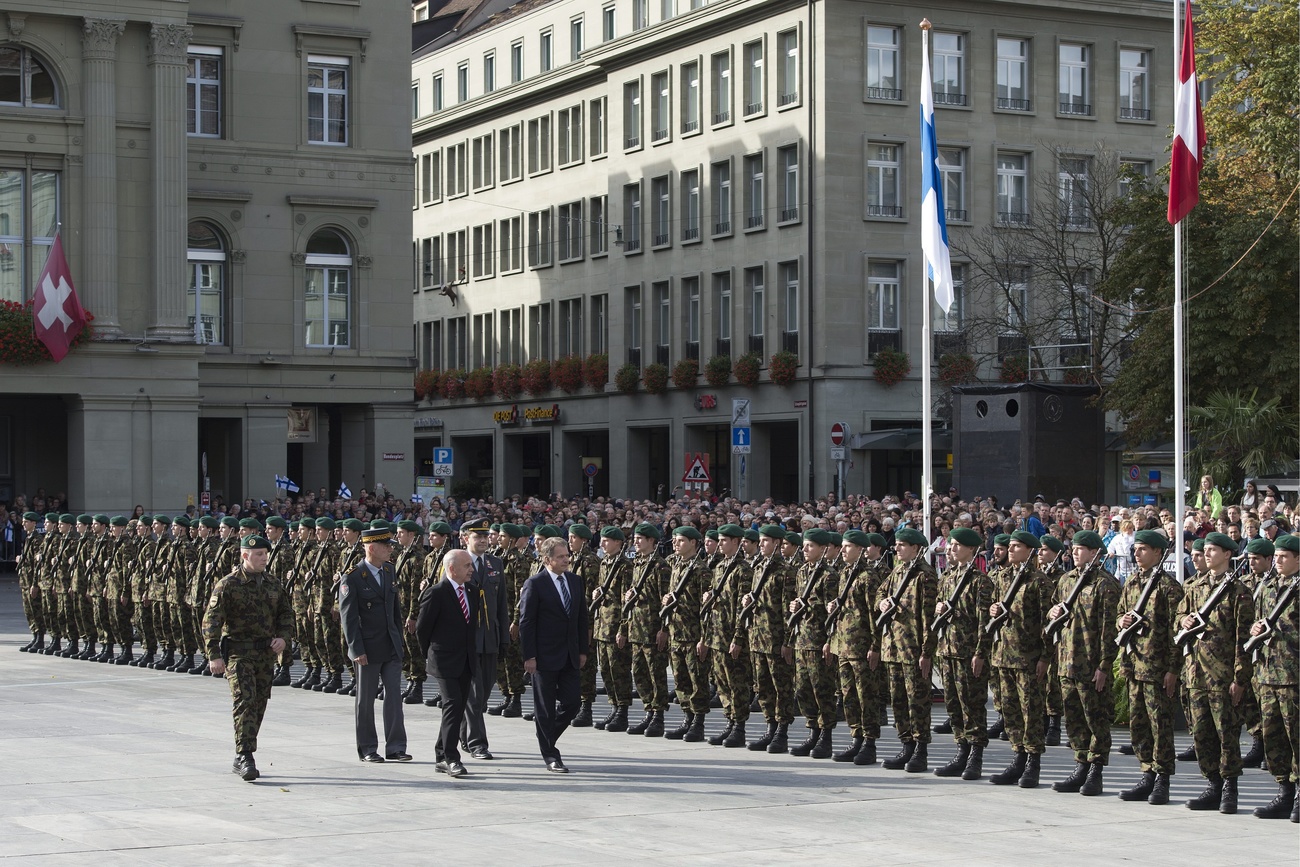Swiss block German request to deliver ammo to Ukraine

Authorities in Bern have rejected – on the basis of neutrality – two recent requests by Germany to re-export Swiss-made ammunition to Kyiv, the SonntagsZeitung paper reports.
“Both Germany’s inquiries were answered in the negative, with reference to Swiss neutrality and the binding rejection criteria of the law on war materiel,” a spokesman for the Swiss State Secretariat of Economic Affairs (SECO) told the newspaper on Sunday.
SECO did not confirm whether the requests were related to ammunition used in Marder infantry fighting vehicles – tanks requested by Kyiv and which are currently part of debates in Germany about sending military material to Ukraine.
Chancellor Olaf Scholz this week has faced heavy criticism for his government’s reluctance to deliver heavy weapons to Kyiv to help defend Ukraine against Russian attacks, as other NATO members step up shipments.
Scholz has said Germany’s military stocks are too depleted to send any heavy battlefield weapons like tanks and howitzers, while those the German industry has said it could supply could not easily be put into use.
No re-exports without approval
Swiss neutrality and weapons export rules prohibit sending arms to countries engaged in a civil war or an international conflict. Arms sales are also bound by a “declaration of non-re-exportationExternal link”, which stops Swiss-made weapons from being forwarded to another country without the prior approval of SECO.
While Swiss neutrality has been the subject of debate since the country decided to join in with European Union sanctions against Russia, the question of weapons exports is clearer, and Foreign Minister Ignazio Cassis ruled out sending arms to Poland last month.
A report by the Neue Zürcher Zeitung (NZZ) newspaper at the end of March also claimed that the Swiss foreign ministry had asked NATO-member Canada to withdraw a request it had made to fly weapons from the UK to Italy via Swiss air space.
Reaction
Gerhard Pfister, president of The Centre party, has no sympathy for SECO’s stance against the transfer of ammunition. On Sunday he tweetedExternal link that he believed the government had the authority to allow Germany to supply Ukraine if it was in Switzerland’s interest under the Embargo Law.
“That seems to me to be the case here if Switzerland helps a European democracy to defend itself.” The government is therefore responsible for this “failure to help Ukraine”, he said.
Laurent Goetschel, director of Bern-based peace research institute Swisspeace, said he backed the government, saying “you’re not neutral one day and no longer neutral the next”.
“Neutrality means that Switzerland doesn’t provide direct or indirect military support to any of the warring parties,” he told Swiss public radio, SRFExternal link, on Sunday.
“In my view, this is with the aim of finding a solution, or even after a ceasefire has been reached. In other words, to be able to help the parties to the conflict agree on a minimum consensus so that hostilities do not flare up again.”
Goetschel said Pfister had the right to express his opinion as party president, “but in this case it’s not a question of potential humanitarian aid, but of the fundamental orientation of Switzerland’s foreign and security policy. This can’t be changed because of a single conflict. Otherwise, in the next conflict, one would have to ask oneself again how politicians should react”.

In compliance with the JTI standards
More: SWI swissinfo.ch certified by the Journalism Trust Initiative



You can find an overview of ongoing debates with our journalists here. Please join us!
If you want to start a conversation about a topic raised in this article or want to report factual errors, email us at english@swissinfo.ch.